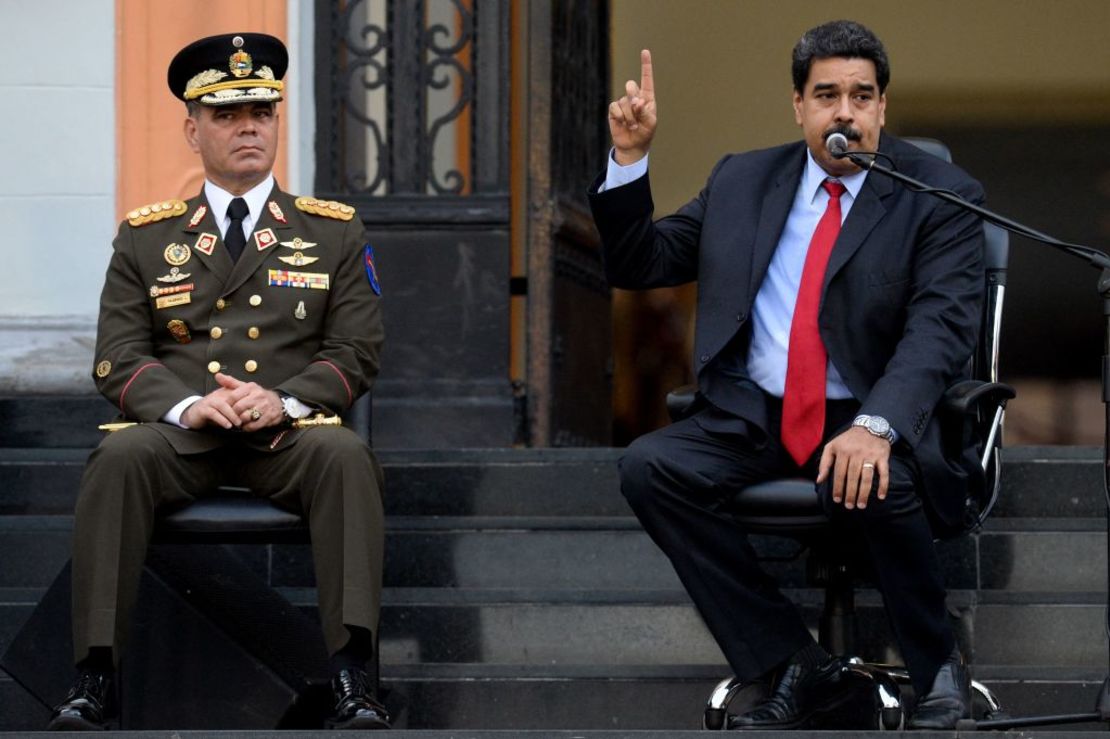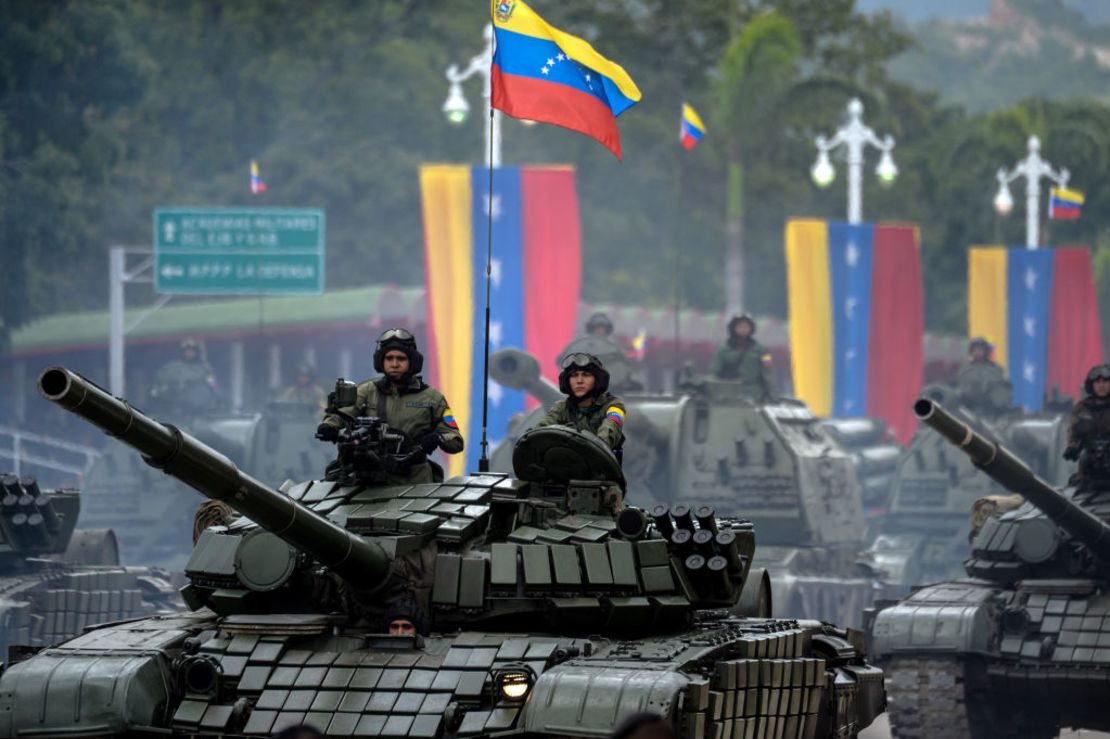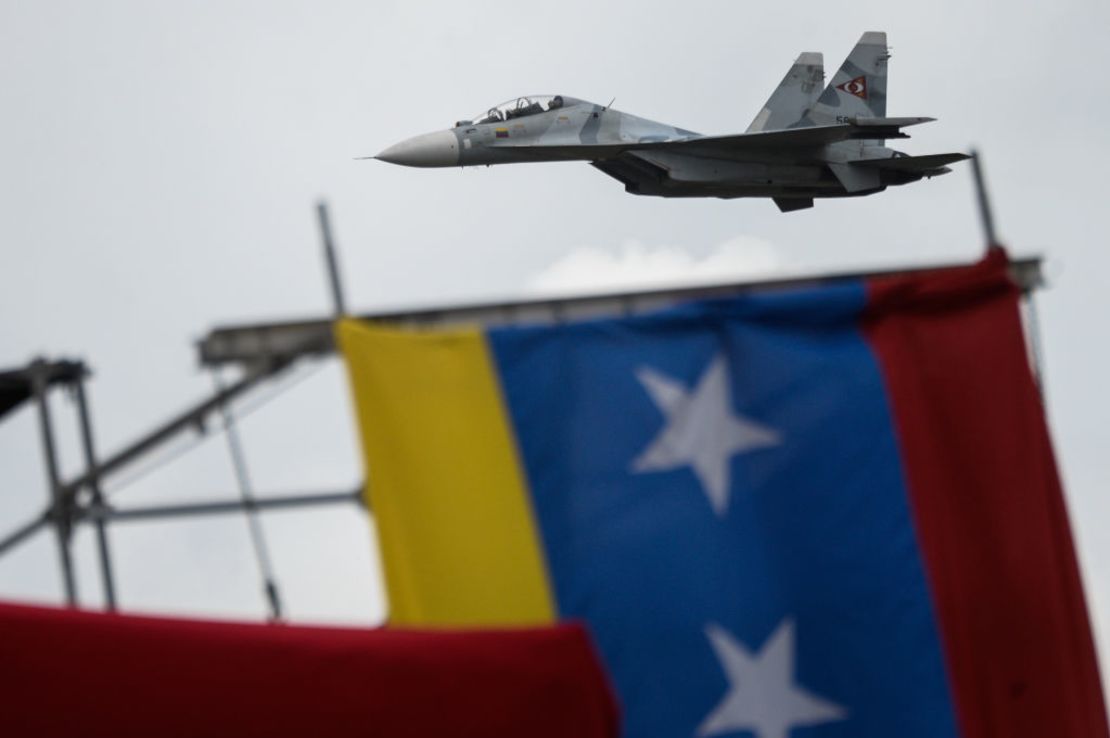( Spanish) — Hugo Chávez joined the Venezuelan army in 1975. When in 1992 he tried to carry out a coup against President Carlos Andrés Pérez, the beginning of his public career, he held the rank of lieutenant colonel.
The current deputy and vice president of the United Socialist Party of Venezuela (PSUV), Diosdado Cabello, one of the central figures of Chavismo who has held numerous positions in the Chavista era including the vice presidency, was also a soldier: reached the rank of lieutenant – then, in 2013, he was promoted to captain by Maduro – and bond with Chávez precisely at the Military Academy.
Also the Minister of Defense, Vladimir Padrino López, is a man born and trained in the Armed Forces. In his case, he has reached the rank of general in chief and is the most powerful soldier in the country.
Nicolás Maduro does not share this military past, but he has still shown himself in a military uniform in his role as commander in chief of the Bolivarian National Armed Forces (FANB), which received the adjective “Bolivarian” for a Chávez decree of 2008.
Many of the top leaders of Chavismo, starting with Chávez himself, have been linked to the FANB since its inception and the institution has become in recent decades a central element in the power structure of the PSUV.
“Maduro depends completely on the FANB. Without the structure and capacity of the Armed Forces there is no way to sustain the regime, because it does not have any other state entity powerful enough to sustain its power,” Andrei Serbin Pont, president of the Regional Coordinator of Economic Research, told . and Social (Cries) and specialist in Security and Defense.
“The FANB, apart from the capabilities to exercise violence, have an entire financial structure and control of the State apparatus that makes them central in any process,” he added.
But what role can it play now in the midst of the crisis unleashed after the presidential elections of July 28, when the National Electoral Council, controlled by Chavismo, proclaimed the victory of Nicolás Maduro without presenting minutes, after which the opposition, led by María Corina Machado, mobilized to present the alleged minutes of the scrutiny and announce the victory of its candidate, Edmundo González?
The inauguration of the new president of Venezuela will occur on January 10, and both Maduro and González Urrutia have said that it is their turn to take office.
In this context, González Urrutia on Monday asked the Bolivarian National Armed Forces of Venezuela to be a “guarantee of sovereignty and respect for the popular will” and said: “I must assume the role of commander in chief.”
That same day, Padrino López said that the FANB will recognize Maduro as president. “Mr. González Urrutia does not understand that the FANB is a pristine institution, that it is due to the Bolivarian Republic of Venezuela and that it does not obey the designs or mandates of other imperial powers,” added the Minister for Defense.

“The FANB can have two roles in this crisis: either they are Maduro’s support, or they are the central tool for a transition, since they are a stakeholder inevitable at a negotiating table and they are the ones who can exercise the effective power to move forward with that transition,” said Serbin Pont.
Michael Shifter, professor of Latin American Politics at Georgetown University, told ‘s Rafael Romo that, unlike the 2008 elections, the Maduro Government knows that the opposition won the elections and it remains to wait to see if the ruling coalition, of which the Armed Forces are part, withstands the pressure.
“If the coalition divides and weakens, the Armed Forces can say ‘this ship is sinking and we don’t want to go down with it,’” Shifter said.
Meanwhile, Padrino López has said that the opposition protests are a “coup d’état” and Maduro assures that he has the support of the FANB because “they are Chavistas.”
The liberator of Venezuela, Simón Bolívar, is credited with the idea that “Ecuador is a convent, Colombia is a university and Venezuela is a barracks.” In reality, that phrase would belong to the essayist Ecuadorian Juan Montalvobut to this day it is a popular way to summarize civil-military relations in Venezuela.
Since the exploits of Bolívar and the wars of independence of the early 19th century, the Army has played a central role in Venezuelan politics. After the return of democracy in 1958, after a series of coups d’état, the military They were even prevented from voting in the new Constitution of 1961, a text that “establishes the role of the armed forces as a technical institution, without participation in politics and not deliberative, obedient to the Constitution and the laws,” as historian Inés Quintero points out in the book “ Minimal history of Venezuela.
This ban on voting maintained until the 1999 Constitution, promulgated shortly after the rise of Chávez.
According to the database of the Stockholm International Peace Research Institute (SIPRI), in that 1999 Venezuela imported weapons worth US$85 million.
The figure was reduced during the first years of the Chávez government, but since 2006, in parallel with the increase in the price of oil –the main Venezuelan export–, arms imports began to skyrocket: they reached a record of US$ 767 million in 2007, remained high in the following years and surpassed the record again in 2013, with imports worth US $993 million.

Since the arrival of Nicolás Maduro to power, the advance of the crisis, hyperinflation and a partial drop in oil pricesarms imports fell again.
Who provided those weapons? After the United States banned in 2006 future arms exports to Venezuela alleging that Caracas was not assisting Washington in the fight against terrorism, Russia, China and Iran became the main suppliers, according to SIPRI. These systems arrived in the last decade coexist with material of American and European origin previously acquired by Venezuela, as seen in the 2024 military balance published by the International Institute for Strategic Studies (IISS).
The state of the arsenals is, however, an unknown, given that the economic crisis has severely affected Venezuela’s military spending, which in 2022 it will reach just 0.6% of GDPaccording to the World Bank, and was below Colombia (3.1%) and Brazil (1.1%), as well as Venezuela’s peak reached in 2017 (2.2%).

In terms of personnel, the FANB also had significant growth in the years of Chavismo: according to World Bank dataIn 1999, 79,000 Venezuelans served in its components, while in 2020, the last year with data, the figure was around 343,000.
Although the most recent figure may be misleading, since it includes, according to the IISS, some 220,000 members of the Bolivarian National Militia, a force created in 2008 through the Organizational Law of the Bolivarian National Armed Forces and which is currently the fifth component of the institution.
On paper, the Venezuelan military is powerful. Its real capabilities, however, are an enigma amid the collapse of recent years. But his link with Chavismo and his centrality in the state of Venezuela has not stopped growing. In fact, the statements from the Ministry of Defense and the greetings of the officers always include the same preamble: “Chávez lives, the country continues. Independence and socialist homeland, we will live and win. The sun of Venezuela rises in Essequibo. Always loyal, never traitors. Independence or nothing.”
Editor’s note: This article was originally published on August 6, 2024 and has been updated.







![An airman unloads medical supplies donated by American non-governmental organizations. [Fotografía: Fuerza Aérea de EE.UU.]](https://thelatestnews.world/wp-content/uploads/2025/01/This-is-the-US-military-base-in-Honduras-key-to-150x141.jpg)




![An airman unloads medical supplies donated by American non-governmental organizations. [Fotografía: Fuerza Aérea de EE.UU.]](https://thelatestnews.world/wp-content/uploads/2025/01/This-is-the-US-military-base-in-Honduras-key-to.jpg)


Add Comment